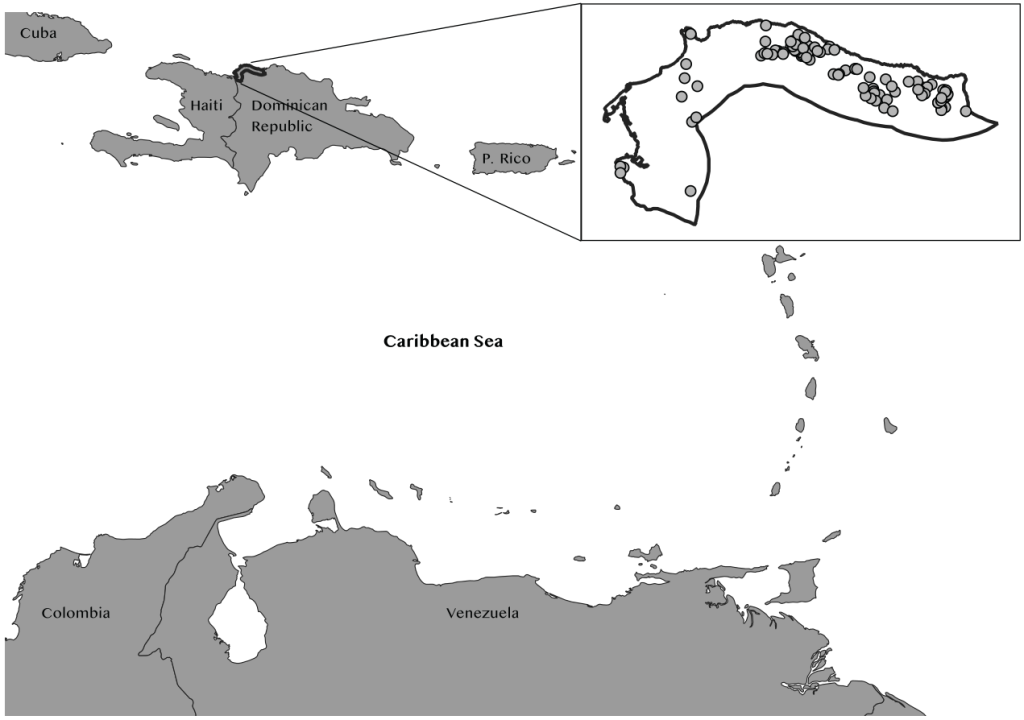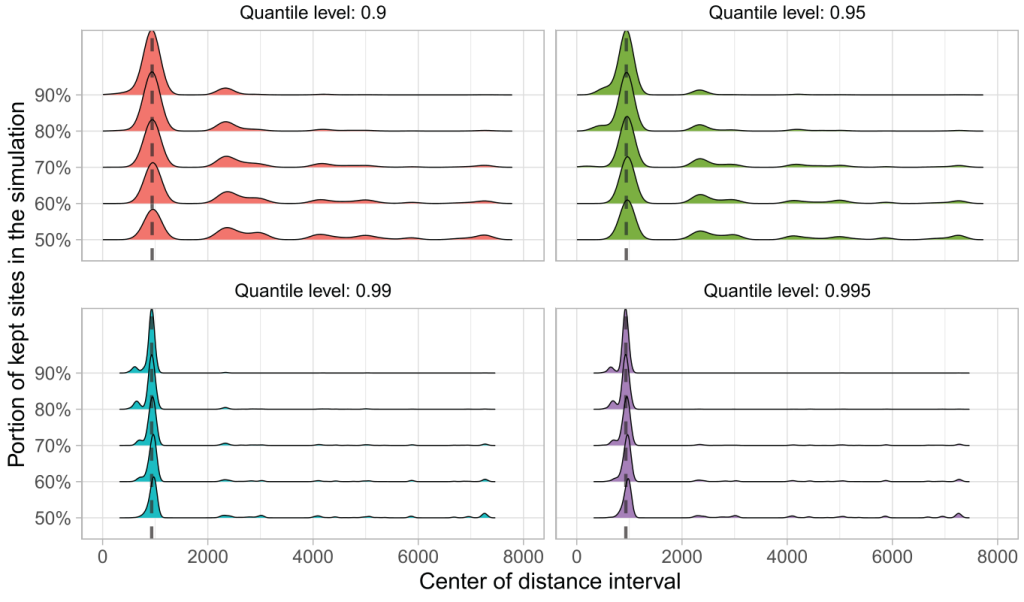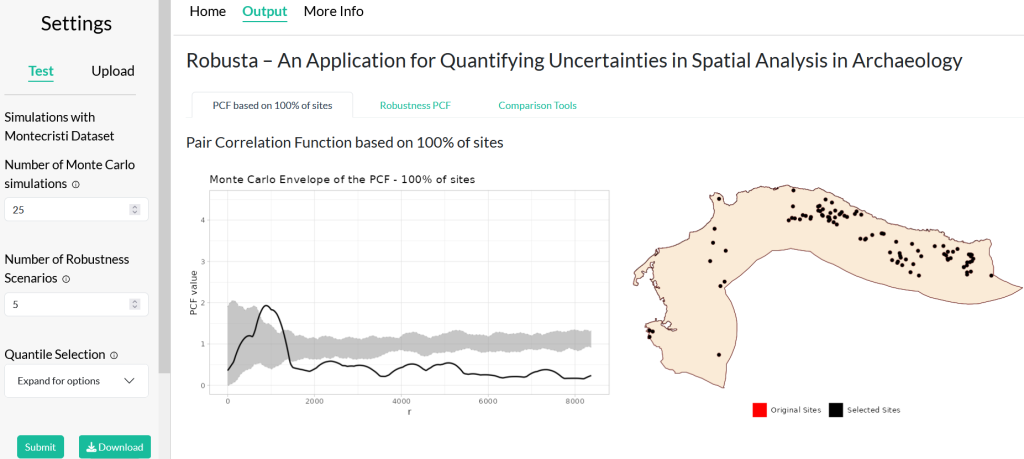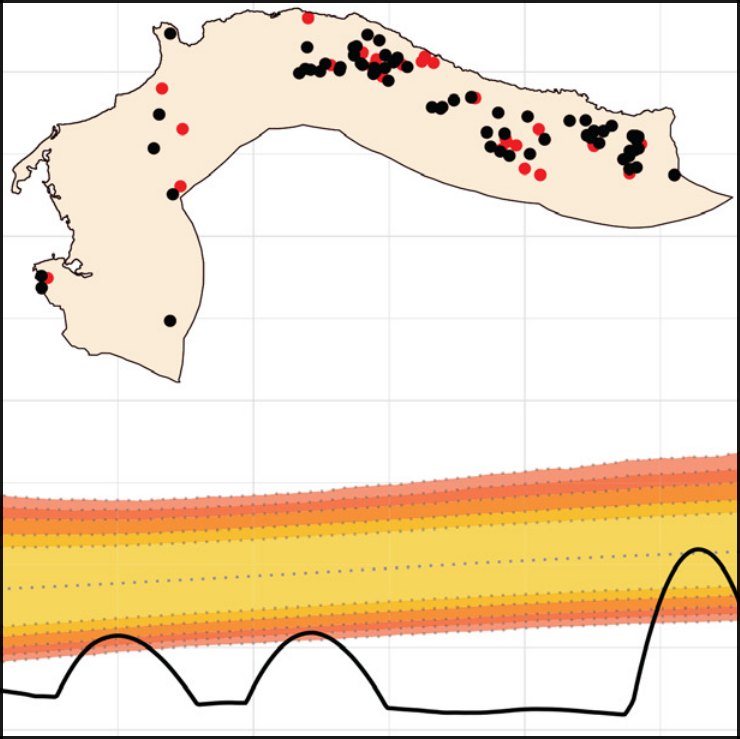| Collaborateurs | Eduardo Herrera Malatesta¹ (Université d’Aarhus), Sébastien de Valeriola |
The goal of this project is to test the robustness of some spatial analysis methods in archaeology. Archaeologists have used point pattern analysis to explore spatial arrangements and relations between ‘points’ (e.g., locations of artefacts or archaeological sites). However, the results obtained from these techniques can be greatly affected by the uncertainty coming from the fragmentary nature of archaeological data, their irregular distribution in the landscape, and the working methods used to study them.
The dataset we have worked on describes Indigenous sites in the northwestern Dominican Republic. It was built by Eduardo Herrera Malatesta during his PhD thesis.

The project takes place in the broader context of uncertainty management in the humanities, a subject on which little work has been undertaken, despite its central importance. In this work, we formalized best practices of uncertainty quantification into a framework to assess robustness. Its structure is the following:
| 1 | The observable | The quantity whose changes we measure when considering deviations |
| 2 | The experiment | The process by which we replicate the deviations |
| 3 | The comparison tool | The way we measure the impact of deviations |
We applied this framework to uncertainty in spatial statistical models, particularly focusing on one commonly used in archaeology, the Pair Correlation Function. This framework allows us to understand better how incomplete data affect a model, quantify the model uncertainties, and assess the robustness of the results achieved with spatial point processes.

This work was the subject of an article published in PLOS One.
A web application has also been developed (by Niels Aalund Krogsgaard, from Center for Humanities Computing), which enables visitors to test our robustness assesment method on our or their own data:

¹ : This research has received funding from Horizon Europe, HORIZON-MSCA-2021-PF-01-01, Marie Skłodowska Curie Action, Grant agreement n˚ 101062882.

